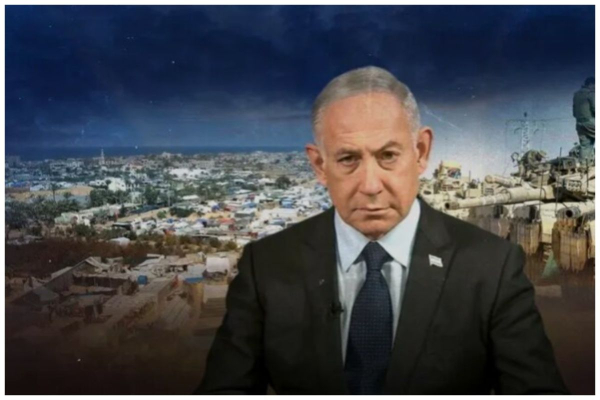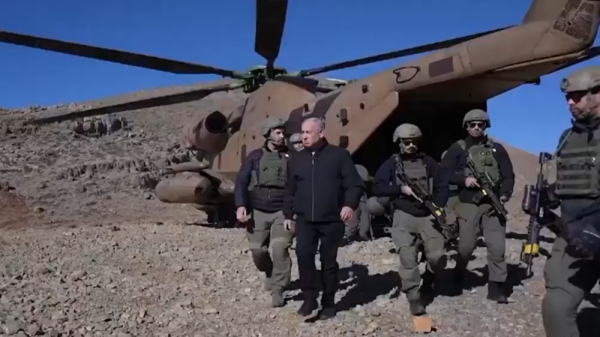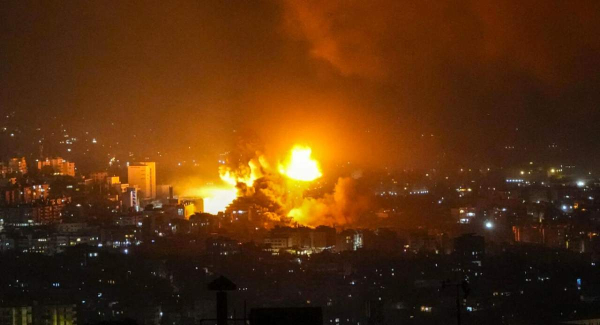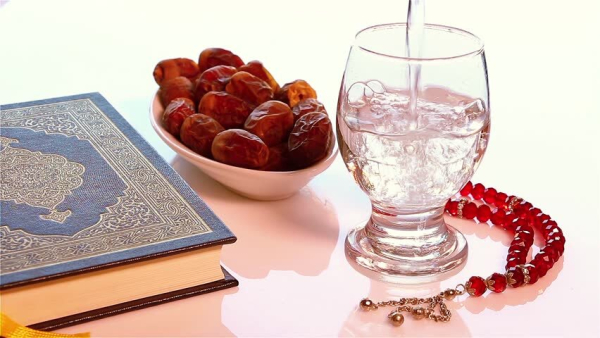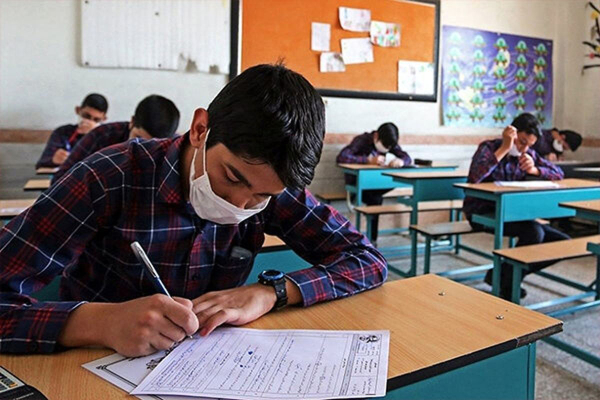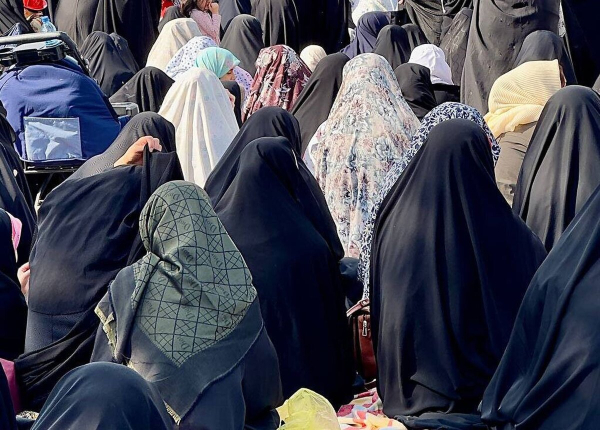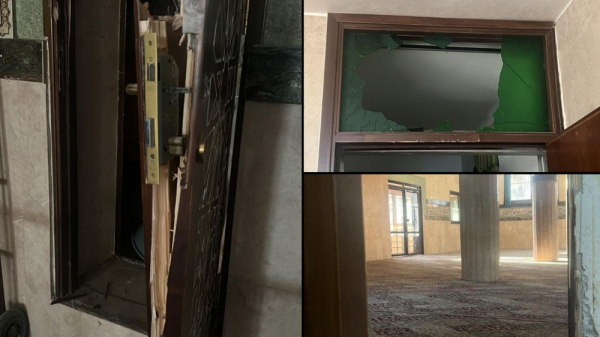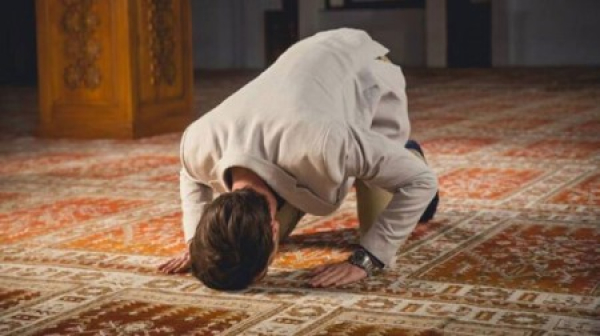zarezadeh
Israel-engineered terrorism in Aleppo shows Syria's key role in Axis of Resistance
Following the cessation of Israeli hostilities in Lebanon with a ceasefire on November 27, residents of south Lebanon, along with those from other affected regions, were finally able to return to their homes.
However, certain border villages and towns have been classified as "high-risk" areas due to heightened security concerns, rendering them inaccessible for the time being.
There have even been reports about Israeli occupation forces stationed at the border opening fire at Lebanese people who tried to return to their homes after the ceasefire.
Meanwhile, a ceasefire in Lebanon coincided with the intensification of violent aggression in western Aleppo, where the Syrian Arab Army (SAA) is currently engaged in confrontations against Israel-backed Takfiri terrorists incorrectly described in mainstream media as Syrian “rebels.”
These terrorist groups, operating in Syria under the umbrella of Hayat Tahrir Al Sham, are supported by the Israeli regime and Western powers and represent a broader geopolitical dynamic at play.
The Zionist entity’s recent disgraceful defeat in southern Lebanon after nearly 70 days of unchecked aggression, marked by its inability to penetrate Lebanese territory due to Hezbollah’s adept military maneuvers, prompted a strategic recalibration.
To salvage its already tattered image, the Israeli regime is now pursuing new fronts of war, aiming to disrupt critical supply chains facilitating the transfer of arms to the Lebanese resistance.
This escalation follows a pointed warning from the Zionist entity’s Prime Minister, Benjamin Netanyahu to Syrian President Bashar al-Assad, telling him “You’re playing with fire.”
Netanyahu’s statement, made in the aftermath of the ceasefire in Lebanon and admission of defeat against Hezbollah, directly references Syria’s crucial role in helping the Axis of Resistance.
Syria’s role in the Axis of Resistance
Syria plays a pivotal role within the Axis of Resistance, serving as a key supporter of both Hezbollah and Palestinian resistance factions by facilitating the transfer of weapons and resources.
Beyond its logistical contributions, Syria also hosts critical research facilities in the city of Aleppo, underscoring its strategic importance to the broader resistance network. Furthermore, Syria remains a frontline state in the struggle against Western-backed proxies, which aim to gain control of Aleppo and undermine President Bashar al-Assad’s democratically-elected government in Damascus.
These dynamics highlight Syria’s dual role as both a logistical hub and a steadfast actor in resisting external attempts to destabilize the region.
Syria’s arms depots, consisting of domestically manufactured weapons as well as supplies procured from other countries, have been instrumental in supporting Hezbollah’s operations in Lebanon.
Over the last decade, Syrian research facilities and scientific research centers dedicated to weapons development have been repeatedly targeted by the enemy.
This has included airstrikes on strategic sites and the targeted killings of key personnel involved in coordinating arms transfers. In recent weeks, these attacks have intensified, signaling a deliberate effort to weaken Syria’s military infrastructure and its role in sustaining the resistance.
At the same time, resistance forces are positioned in Aleppo to counter the growing threat of enemy-backed proxies in and from northern Syria. These proxies are attempting to overextend the resistance and cut off essential supply routes, further illustrating the interconnected nature of the regional war.
Why did Syria refrain from entering war?
The argument that Syria did not enter the war against the Zionist regime is rooted in the complex realities of its domestic and regional circumstances.
Syria refrained from direct involvement alongside Hezbollah or Palestinian resistance factions because it is deeply engaged in its own internal battles, fighting terrorist forces within its borders. Despite this, Syria has continued to serve as a critical supplier of weapons to the resistance front.
For instance, when Hezbollah targeted the Israeli regime’s Tel Nof airbase, it used a modified version of the 302-mm Syrian M-302 Khaibar-1 Multiple Launch Rocket System (MLRS) with a declared range of up to 225 km, referred to as the “Fadi-6.”
This adaptation, provided by Syria, included extending the rocket's range and reducing the warhead's weight, resulting in a total weight of 650 kg and a 140 kg warhead.
Additionally, a military video released by Hezbollah on November 3 highlighted its underground facilities and reinforced its commitment to resistance.
“We will not leave the battlefield... We will not lay down our weapons," it stated.
The footage showcased “Fadi-4” rockets, derived from Syria’s Khaibar-1, alongside AKS-74U carbines, further demonstrating Syria’s contributions to the Lebanese resistance’s arsenal.
There have also been repeated discoveries of weapons by the IOF during their infiltration of warehouses and buildings in southern Lebanon. Among these findings were weapons of Russian origin, previously identified as being used by the Syrian Arab Army.
These discoveries further underscore Syria’s deep involvement and unwavering support for Hezbollah, demonstrating the extent of its commitment to the resistance.
Israel’s terror operations in Syria (2022–2024)
Between 2022 and 2024, Israel’s operations in Syria largely focused on dismantling the country’s air defenses, radar systems, and military research facilities.
It systematically targeted critical components of Syria’s military infrastructure, including scientific research centers, defense laboratories, and weapons depots. These sites are essential for Syria’s military development and strategic capabilities.
In early November 2024, for example, Israel launched an attack on a scientific research facility and defense laboratories of the Syrian Arab Army near Al-Safira in the Aleppo countryside.
These facilities are not only critical bridges for the transfer of weapons but also central to Syria’s broader role in supporting the resistance. Syria’s scientific research centers, defense laboratories, and military manufacturing facilities form the backbone of its defense capabilities, enabling the production of weapons ranging from bullets to missiles and artillery.
Israeli regime’s recent actions can be characterized as defeatist, reflecting its acknowledgment of losing the war in Lebanon against the Lebanese resistance before it even began.
Its escalations in Syria are not only attempts to regain some semblance of control but are also aimed at undermining Hezbollah’s resistance capabilities.
However, the SAA remains steadfast in its defense of the Syrian people and its support for the Axis of Resistance. The freedom fighters in Syria are deeply loyal to President Bashar al-Assad and inspired by the martyrdom of iconic leaders such as Sayyed Hassan Nasrallah.
Over the past decade, Syria has significantly bolstered the resistance in Lebanon, including advancements in drone and missile technology for Hezbollah.
In parallel, an intense propaganda campaign against the SAA is in full swing, similar to those launched against the Arab country beginning in 2011.
Such efforts aim to delegitimize Syria’s role in the resistance axis and weaken its influence.
Yet, history demonstrates that when an enemy resorts to these strategies in the aftermath of a defeat, it is often only a matter of time before it faces another failure.
Syria’s resilience and its strategic alliances continue to thwart the Tel Aviv regime’s attempts to destabilize the region, and the enduring battle for a liberated Palestine continues.
Ghadir Khumm is a university student in Canada pursuing a master’s degree. She focuses on postcolonial studies, dedicates her time to international relations, and crafts insightful political analyses on global issues.
By Ghadir Khumm
Press TV’s website
Netanyahu: Israel won't allow Hayat Tahrir al-Sham forces in southern Syria
Israeli prime minister Benjamin Netanyahu has said that his regime will not tolerate the presence of Hayat Tahrir al-Sham (HTS) nor any other forces affiliated with the Arab country's new rulers in southern Syria.
Netanyahu said at a military graduation ceremony on Sunday that Israel will keep its positions there as a “defensive measure” and for as long as is necessary.
"We will not allow forces of the HTS or the new Syrian army to enter the territory south of Damascus. We demand full demilitarization of southern Syria, in the provinces of Quneitra, Daraa and Sweida," Netanyahu was quoted as saying.
The Israeli prime minister also said the regime's troops will remain stationed at a so-called “buffer zone” inside the occupied Syrian Golan Heights, seized following the fall of President Bashar al-Assad,
Former al-Qaeda affiliate HTS took control of Damascus in early December in a stunning offensive, prompting a wary Israel to move forces into a UN-monitored demilitarized zone within Syria.
Militant factions, led by Hayat Tahrir al-Sham, toppled Assad’s government on December 8 last year.
Following the downfall of Assad’s government, the Israeli military has been launching airstrikes against military installations, facilities, and arsenals belonging to Syria’s now-defunct army.
Israeli military aircraft on Tuesday launched a series of strikes against several weapons sites inside Syria in the latest act of aggression.
The Israeli military said that its unmanned aerial vehicles struck weapons which it said belonged to the former Syrian administration in the Sa'sa' district of Rif Dimashq province, located southwest of the capital Damascus and near the occupied Golan Heights.
Israeli media recently reported that the regime’s ministers had met to discuss a classified plot to promote the division of Syria after the fall of Assad's government.
Last month, regional security sources briefed on the plot were quoted as saying that Israel had already planned to divide Syria into three blocks and to establish military and strategic ties with the Kurds in Syria’s northeast and the Druze in the south, leaving Assad in power in Damascus.
Press TV’s website
Israel strikes targets in southern Syria after pressing for ‘demilitarization’
Israeli warplanes have carried out multiple airstrikes on military targets across southern Syria, attacking areas outside the capital Damascus and the southern province of Dera’a after a call by Israeli prime minister Benjamin Netanyahu for “demilitarization” of the region.
Israeli minister for military affairs Israel Katz confirmed the assaults, which hit military installations in the town of Kiswah, south of Damascus, as well as some sites in Dera’a.
Israeli paper Yedioth Ahronoth also alleged that Tel Aviv had begun implementing a scheme aimed at “entering southern Syria and controlling” it.
The developments came after Netanyahu pressed for “complete demilitarization” of southern Syria, including the provinces of Quneitra, Dara’a, and Sweida.
In 2011, the Israeli regime began backing up Takfiri terrorist groups and intensifying its deadly aggression against Syria as a means of trying to oust the Arab country’s democratically-elected government of Bashar al-Assad, which had consistently proven an opponent of Tel Aviv’s regional aggression.
Late last year, the regime ramped up its attacks across the Syrian territory even further, claiming that it sought to prevent violence inside Syria from spilling over into the occupied territories.
Israeli forces even entered the United Nations-demarcated buffer zone between Syria and the occupied Palestinian territories in the country’s Tel Aviv-occupied Golan Heights in a move that was condemned by the UN.
Meanwhile, foreign-backed militants overthrew the Syrian government amid the Israeli escalation that was targeting the country’s defensive and civilian infrastructures, setting up their own administration.
In the aftermath of the Tuesday airstrikes, however, Syria’s new authorities condemned the Israeli regime's aggression, demanding immediate withdrawal of Israeli forces from the country’s territory, and warning of the consequences of the regime’s continued military presence there.
Protests over Netanyahu’s ‘demilitarization’ push
Also on Tuesday, widespread protests erupted across southern Syria in response to Netanyahu's recent remarks.
Demonstrators in cities such as Dara’a, Damascus, Sweida, and Quneitra took to the streets in defiance of Netanyahu's call, with those showing up in the capital gathering outside the United Nations office to denounce the Israeli prime minister's statements and urge an international response to Israeli violations of Syria’s sovereignty.
Many protesters emphasized Syria's right to territorial integrity and sovereignty, rejecting any foreign interference, whether by the regime or others.
Press TV’s website
Shaking hands between men and women that are not Mahram
All imitation authorities consider any physical contact between girl and boy, even shaking hands with people from religions other than Islam, and those who live abroad are prohibited from doing so. And it is only permissible to shake hands with gloves they do not press each other and do not intend to enjoy.
Islam's opinion on the hand with the unholy
While the opposite sex may not stimulate lust for many people, there are other people who are also stimulated with this brief amount of communication, given that among the first group may also be people who may be with Cordly to show themselves provide the basis for illegitimate communication.
Accordingly, it deserves to be lost with the unholy that is not essential in social life. God Almighty has enacted most of the religious laws and considers the public interest in the general community, although the wisdom of the judgment may not include some people. For example, although shaking hands with women may not create any erotic feeling in some older or middle -aged people, the sacred law has ruled in many people because of the same feeling.
But about the physical contact of the man and the woman and the shakes and clashes with each other, the imitation authorities have generally said: Handy is not permissible unless something is hijab, or secondary titles such as The necessity is true.
To brush during fasting?
Some people do not have the opportunity to brush before dawn, so they have to brush your teeth after adhan, here may be the question for some to brush at this time? Will fasting be invalidated or not?
Ayatollah Khamenei
Question: Is it okay to brush with toothpaste?
Answer: It's okay; But the mouth water that is impregnated with toothpaste and water should be prevented.
Ayatollah Behjat
Question: Is it okay to brush with a fasting toothpaste?
Answer: If nothing comes into the throat, it's okay.
Why shouldn't the traveler fast?
According to verse 185 of Surah Baqarah, why can't the traveler fast?
Regarding the necessity of fasting on the journey, the Holy Qur'an in Surat al -Baqarah says: "You want it easy and it doesn't want it to be difficult."
Imam Sadiq (peace be upon him) quotes the Prophet (peace be upon him): "Iftar is a broken journey and prayer of divine gifts. Whoever does not pay attention to it has rejected the divine gift. "
According to this statement, perhaps one of the philosophies and wisdom of fasting in the journey is the same issue of discount on the task, and in other words, it is the expression of the servants.
What is the decree of fasting during Ramadan because of exams?
Ayatollah Makarem Shirazi:
Iftar's permission is not fasting and if it can, it must change its study hours and postpone the time interval of Iftar to magic or when it is more capable of studying. Otherwise, the only AFTARI license is to get out of the city in some days (eg, 2-5 days), and there to return and return. And until Ramadan next year it did it.
What is the ruling of foot covering when praying?
Ladies in front of the unholy should cover the legs; There are only two positions for women to cover in the presence of the unmarried: "Face Tour" and "Hands to the wrist", if they do not have the makeup and ornament that is noticeable and impressive. "
The woman must even cover her head and hair at the time of prayer. But covering the face as washed in the ablution, and the hands to the wrist, and the legs to the ankle. But in order to make sure he has covered the obligatory amount, he must cover some of the face and a little lower than the wrist.
One of these differences is the same thing that the question above seeks to clarify; That is, the subject of the lack of necessity to cover the feet for the woman in prayer and the necessity of preserving it from an unmarried perspective.
It should also be noted that the meaning of the foot is all the fingers, the foam, the face and the back to the leg, not above.
Ayatollah Makarem Shirazi's opinion on prayer, covering and foot is not necessary, unless it is against the unholy.
So, as mentioned, it is not necessary for a woman to cover this part of her body in prayer, and the prayer is as good as the leg and above it is covered.
It is obligatory on the woman to cover the whole leg from the unholy, but if it is there during the prayer, it is obligatory to cover the whole leg. But if it is not unhealthy, you should cover your feet until the ankle.
QUESTION: What is the sentence when prostrating part of the leg, and during prostration, what is the case?
Answer: Yes, it is okay to appear a hand or leg and the like.
Q: Is it obligatory for women to cover the foot of women during prostration or prostration?
Answer: It is not obligatory to cover the foot of the feet as well as on the foot; As long as the unmarried is not present; Therefore, if the unmarried sees him, it is obligatory to cover the floor and on the feet.
Israeli forces blow off doors of mosque in Nablus as violent raids rage in West Bank
Israeli forces have raided the Imam Ali Mosque in the northern West Bank city of Nablus, confiscating the recordings of surveillance cameras installed there.
Reports said on Tuesday that the occupation soldiers blew up the doors of the mosque.
Meanwhile, the regime forces carried out incursions into northern areas of Nablus and besieged a house in the town of Zababdeh, southeast of Jenin.
Also on Tuesday, Faisal Salama, head of the Popular Committee for Tulkarm Camp Services, said Israeli troops have forcibly displaced more than 12,000 residents of the refugee camp over the past month, and destroyed 40 residential buildings as well as 300 shops.
Israel is "seeking - as is clear - to achieve political and media goals ... by emptying it (the refugee camp) of its residents, ... destroying and burning the largest possible number of homes, and eliminating basic services."
The Israeli military launched its offensive against the occupied West Bank on January 21, claiming that it was targeting resistance fighters of the Jenin Battalion.
Israel has ramped up West Bank violence since October 7, 2023, when it launched its genocidal war on the Gaza Strip. Since then, the regime forces have killed at least 923 Palestinians in the occupied West Bank.
On Monday, the occupation soldiers stormed the city of Tulkarm, as well as Yatma, Beit Ummar, Kafil Haris, Qabatiya, and Ni’lin towns, and the villages of Marka and Wadi al-Far’a. Other raids targeted the Fawwar, Jalazone, and Tulkarm camps.
Press TV’s website
What is the ruling of prayer without a soil?
The prayer soil or Torbat is a piece of stone or soil molded on which the Shiites put their foreheads on prostration. Although prostrations are not necessary from the Shiites' point of view and can prostrate on earth, soil, stone and what you go from the earth (other than food and clothing), the Shiites use the soil as one of the prophets. Akram and their Ahlul -Bayt know prostrate in the use of soil, stone and land.
According to Shiite jurisprudents, prostration to Torbat Imam Hussein (AS) is obligatory. They prostrate and prostrate from this Torbat. Wahhabis consider making and prostrating over the seal; But the Shiites believe the seal is the same soil.
Can you pray without a stamp?
Seal is not obligatory. What is obligatory is prostration to the ground. If you pray on soil, stone, mat, wood, tree and paper, it's okay.
But according to the traditions we have of Prophet Muhammad (peace be upon him) and the Imams (PBUH), prostration to the carpet and fruits is false. The reason is that the Prophet (peace and blessings be upon him) said:
God has placed the earth for me, the prostrate and the place of purity.
جعلت لی الأرض مسجدا و طهورا.
